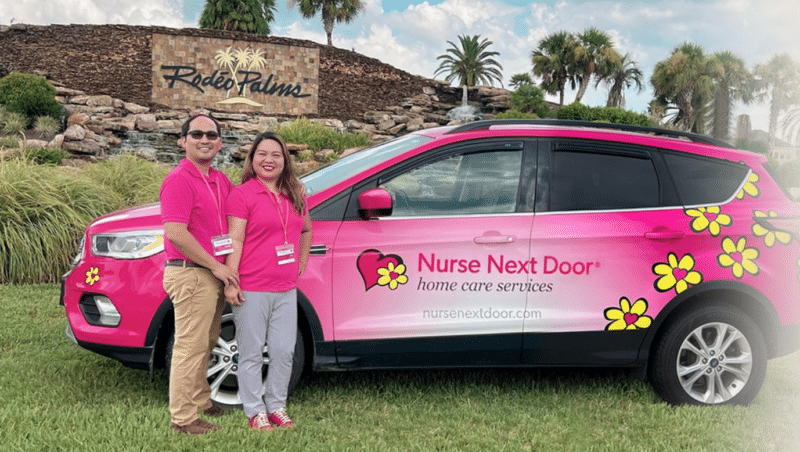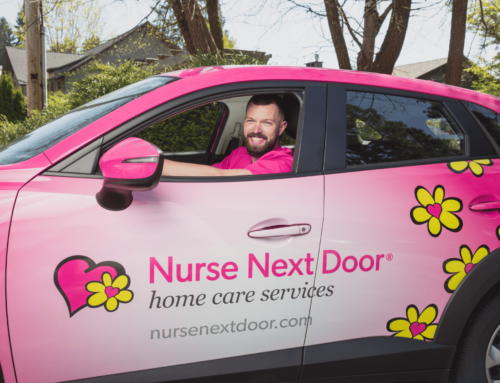Are you searching for a career that delivers both financial benefits and the opportunity to make a meaningful difference? Entering the home health care industry now is a smart move, whether you’re thinking of starting your own business or joining an existing franchise. With more seniors choosing to age in their homes, there’s a growing chance to marry profit with purpose.
Running a home health care agency goes beyond the typical goals of a business; it’s about making a real impact. As the Baby Boomer generation gets older, the need for home health care services is on the rise, making the choice of state for such a business more critical than ever. By 2030, all Boomers will be older than 65, which is expected to result in a 15% increase in health care jobs. That’s about 2.4 million new job opportunities, highlighting the expanding potential of this sector.
Choosing the right state to launch your home care business is key. Every state has potential due to the increasing demand, but it’s important to look for places with a high need for home health care, favorable tax conditions, and opportunities for growth. This guide is crafted to help you identify the best states to start your journey, focusing on what will benefit home health care business and franchise owners the most.

Transforming Lives Through Home Health Care
Starting your own in-home care agency or joining a home care franchise isn’t just about business growth. It’s about significantly enhancing the lives of clients and their family members. This aligns perfectly with the increasing demand from seniors to receive nursing care and personal care aides at home.
Here’s the difference you can make:
- Community Well-being: Operating a home care business positions you as a crucial contributor to the health and happiness of your community. You play a vital role in innovating healthcare delivery, benefiting everyone in the nation.
- Supporting Families: You provide substantial support to families navigating the challenges of aging, illness, or disability, offering them peace and nursing care in the comfort of their homes. This is increasingly important as the cost and impersonal nature of long-term care facilities, such as nursing homes and assisted living facilities, become prohibitive for many.
- Strengthening Local Care: Your services address the essential needs of the senior population, bolstering local healthcare systems and enabling older adults to age gracefully at home. This is especially critical as a growing number of individuals prefer home health over traditional nursing home care, seeking more affordable and comfortable alternatives.
Diving into the home care industry means dedicating yourself to enhancing lives, empowering communities, and supporting personal care aides, all through providing tailored care plans for seniors. This approach underscores the urgent need for home care services and the profound influence these services have on individuals, their families, and the broader community.
Highlighting the Best States for Home Health Care Opportunities
Starting your home health care business is both thrilling and impactful. Success begins by choosing the right state, focusing on regions with a substantial senior population in need of your services (Source: PRB). It’s vital to select a location where your agency can make a significant difference. Consider factors such as the state’s total population of seniors, state rankings in health services, and access to medical professionals.
Understanding each state’s specific regulations for businesses like yours is crucial, as well as identifying areas with fewer competitors. Certain states may offer benefits, such as favorable state income tax conditions, to help your business grow. Consulting with tax professionals and home care franchise development experts can provide you with personalized, strategic insights.
Choosing the best state for your venture means finding a place where you can meet a real need, comply with regulations easily, and have room for expansion. Discover the best states to become a home health care business owner:
🌼 1. Florida: Florida is a prime spot for home care startups, thanks to its 21.3% senior rate and 4.5 million retirees. The state’s appealing tax policy, including no personal income tax and a modest 5.5% corporate tax, boosts its attractiveness. Challenges, such as licensing costs and finding qualified staff, exist, but Florida’s demographic and fiscal advantages create an ideal environment for home care business endeavors.
Licensing Requirements: Comprehensive, involving both medical and non-medical licensing, to provide a full regulatory framework for providers.
🌼 2. Texas: Texas appeals to home health care entrepreneurs with its 12.9% senior population and tax-friendly climate, featuring no personal income tax and a 5.5% corporate tax rate. Despite its supportive, cost-effective business environment, challenges in licensing and finding skilled workers need to be addressed. Texas stands out as a top choice for home health care ventures.
Licensing Requirements: Detailed, with licensing from the Texas Health and Human Services Commission covering Personal Assistance Services (PAS) for non-medical care and Home Health licenses for medical services.
🌼 3. New Hampshire: New Hampshire is ideal for home care businesses with its 19.0% senior population and enticing financial perks, such as no sales or personal income taxes and a low 5.5% corporate tax rate. Its favorable tax environment and low operational costs are significant advantages, although challenges like medical service licensing and skilled worker recruitment need consideration.
Licensing Requirements: Streamlined, exempting non-medical home care services from licensure. However, providing medical services requires a Home Health Care Agency license.
🌼 4. South Dakota: With a 17.6% senior population and a business-friendly climate including no corporate or personal income taxes and only a 4.5% sales tax, South Dakota attracts entrepreneurs. Tax benefits and a lower cost of living are major draws, though finding skilled workers for medical services poses challenges. The state’s minimal regulatory demands make it a compelling choice.
Licensing Requirements: Flexible, without specific licensing requirements for either non-medical or medical home care agencies, allowing unparalleled regulatory freedom.
🌼 5. Arizona: Arizona offers significant advantages for startups with its 18.1% senior population and business-friendly atmosphere, highlighted by a low 4.9% corporate tax rate and no inventory tax. Challenges in licensing for medical services and finding skilled workers are present, yet Arizona’s low operational costs and supportive regulatory framework are substantial benefits.
Licensing Requirements: Diverse, with non-medical home care operations exempt from licensing, while medical services require a Home Health Care Agency license from the Arizona Department of Health Services.
🌼 6. Wyoming: Wyoming presents a promising landscape with 17.8% of its population being seniors and no state licensing requirements for both non-medical and medical home care services. This, combined with no corporate income tax and a lower cost of living, offers a cost-effective environment for startups, though challenges in workforce recruitment and service delivery might arise.
Licensing Requirements: None, eliminating the need for specific state licenses for both non-medical and medical home care agencies, significantly facilitating the entry process for entrepreneurs.
🌼 7. Utah: Utah provides fertile ground with 11.7% of its population being seniors, supported by a strong workforce and a low 4.8% corporate income tax rate. The state’s business-friendly climate and below-average cost of living are beneficial, although licensing fees and recruiting skilled labor present challenges.
Licensing Requirements: Dual approach, with no state license needed for non-medical home care agencies, while medical services require a Home Care License from the Utah Department of Health.
🌼 8. Georgia: Georgia’s senior population of 14.7% and its pro-business climate with low taxes offer an inviting environment for home care entrepreneurs. While licensing fees and the recruitment of skilled workers pose challenges, the state’s affordability and business incentives lay a robust foundation for success.
Licensing Requirements: Comprehensive, requiring registration with the Georgia Department of Community Health for both non-medical (Private Home Care Provider) and medical (Home Health Agency) services.
🌼 9. Tennessee: Tennessee’s welcoming environment, characterized by 17.1% of its population being seniors and the absence of state income tax, provides a competitive edge for home care businesses. Despite a favorable business stance and lower living costs, considerations such as licensing and availability of skilled workers are important.
Licensing Requirements: Simplified for non-medical home care agencies, which require no specific license, whereas medical services need a Home Health Agency license.
🌼 10. South Carolina: With an 18.2% senior population among nearly 5 million residents, South Carolina offers a vibrant market for home care businesses, bolstered by a low 5% corporate tax rate. While living and business operation costs are slightly below the national average, navigating licensing requirements and securing skilled personnel present challenges. The state’s emphasis on rural health care access and supportive regulatory environment make it an attractive option for entrepreneurs.
Licensing Requirements: Well-defined, mandating registration for non-medical home care providers and licensure for medical home care services to ensure community-wide quality care.
🌼 11. Arkansas: Arkansas provides a promising landscape for home care business startups, with 17.7% of its population being seniors. Paired with a low cost of living and a 5.3% corporate income tax rate, the state offers a cost-effective setting for business operations. The lack of licensing simplifies startup procedures, though challenges such as finding skilled labor for medical services and complying with federal regulations need attention. Arkansas’s business-friendly climate and lower operational costs offer substantial advantages for newcomers.
Licensing Requirements: Absent, with the state not requiring specific licenses for both non-medical and medical home care services, facilitating an easier entry for entrepreneurs.
🌼 12. Missouri: Missouri, with its 17.7% senior population and absence of state income tax, provides fertile ground for home care businesses. The state’s low cost of living and 4% corporate tax rate, along with its central location, create a cost-effective business environment. While licensing for medical services and potential workforce shortages are challenges, Missouri’s supportive business climate and streamlined regulations make it an appealing choice for entrepreneurs.
Licensing Requirements: Streamlined for non-medical home care agencies with no specific licensing needs, providing a straightforward setup process. However, medical service providers must secure a Home Health License from the Missouri Department of Health and Senior Services.
While each state offers unique opportunities and challenges in the context of an aging population, consulting with a Franchise Development Manager can help you assess community needs and position your business for success.
Ready to explore what your state has to offer? Speak with a Franchise Development Manager today at 1-855-737-6803. Their insights can guide you through the complexities of starting a home health care business, ensuring your venture is not only viable but also primed for growth and a meaningful contribution to the community.
Unlock the Nurse Next Door Difference: Your Path to Success in Home Health Care
Choosing Nurse Next Door means stepping into a role that merges profound care through human services with a thriving business model in the growing industry of home care. Our franchise network propels partners to success, not just through business growth but by emphasizing life-changing personal care and nursing care. Here’s how we stand out:
- Comprehensive Support: Beyond operational guidance and regulatory compliance assistance, we offer a 24/7 call center, allowing our home care agency owners to focus on delivering exceptional care.
- Advanced Training: Our training programs don’t just cover business management—they dive deep into industry innovations and the nuances of providing senior care, preparing franchise owners to confidently navigate the home health care landscape.
- Marketing and Brand Power: Leverage the Nurse Next Door Bold Pink brand along with our comprehensive national and local marketing efforts. This approach not only supports the business side of operations but also emphasizes the importance of home health services in improving the lives of clients and their family members.
- Proven Business Model: Our business model balances financial viability with exceptional client care, contributing to a fulfilling experience for both clients and franchise owners. It’s designed to meet the high demand for home care services, reflecting our commitment to premium care.
- Happier Aging™ Philosophy: We transcend the basics of home care by focusing on enriching clients’ lives through Choice, Purpose, Respect, Autonomy, and Belonging, aiming to make a significant impact on the well-being of older adults and their families.
Joining Nurse Next Door is more than starting a business; it’s a commitment to impactful care in the rapidly expanding home health care industry. Our extensive support network, training, branding, and business model are all aimed at setting our franchisees on a path to success, creating a community that improves lives, one personalized care experience at a time.
Your Next Step Towards a Rewarding Future in Home Health Care
In the thriving sector of home health care, with its growing demand driven by an aging population and a strong preference for aging in place, the timing has never been better for entrepreneurs to make their mark. This demand is echoed by labor statistics projecting a rise in jobs and highlighting a national trend towards in-home care over traditional long-term care facilities.
Partnering with Nurse Next Door elevates these opportunities, offering a robust support system that includes operational guidance, advanced training, effective marketing strategies, and our unique Happier Aging™ philosophy. This comprehensive approach ensures our franchisees are not just prepared but are leading the way in a competitive market, offering essential services that range from nursing care to personal care, supporting the health and well-being of the senior population.
Nurse Next Door is more than a franchise; it’s a community dedicated to making a meaningful impact on the lives we touch, supporting older adults and their family members with quality care and compassion. We’re here to support you at every stage, from selecting the most advantageous state for your business to mastering the intricacies of the healthcare sector, ensuring that you’re well-positioned to meet the growing demand for home care services and contribute to the health and happiness of your community.
Ready to take the next step? Contact a Franchise Development Manager for a personalized consultation and embark on a rewarding journey of business ownership. Call us today at 1-855-737-6803.

 x
x







